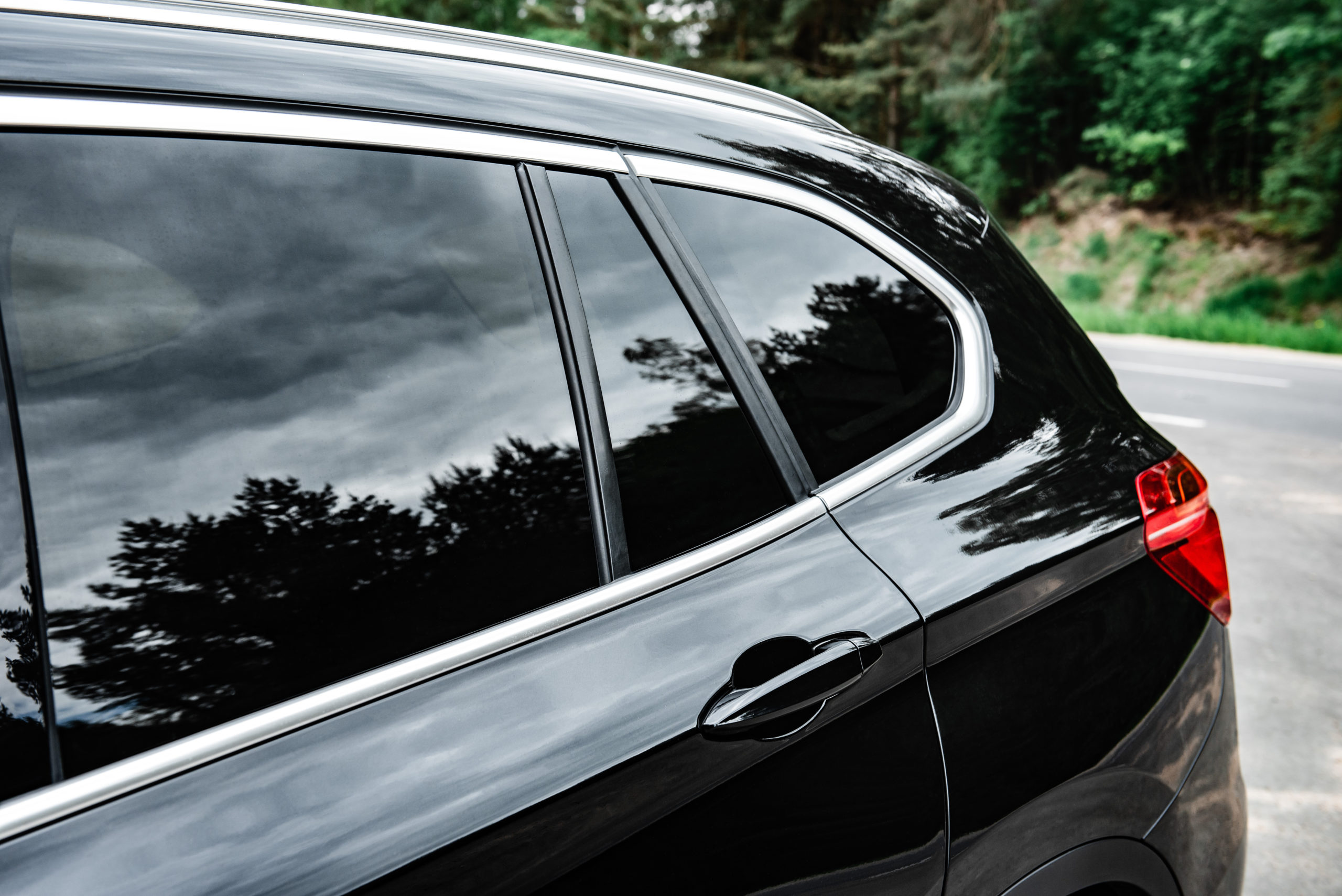AO Detail Window Tintingfor a Polished Finish
AO Detail Window Tintingfor a Polished Finish
Blog Article
Remain Cool and Comfortable: The Scientific Research Behind Window Tinting
Window tinting represents an innovative interaction of materials scientific research and sensible application, operating mostly with a slim film that alters the method light connects with glass. This innovation is not merely an aesthetic option; it plays an essential duty in lowering solar warmth gain, decreasing glow, and offering substantial UV protection. As we discover the numerous devices and advantages connected with Window tinting, it ends up being evident that its effect expands past convenience, affecting energy intake and ecological sustainability. The inquiry stays: what elements should one consider when selecting the suitable Window color for their specific needs?

Exactly How Window Tinting Functions
Window tinting runs with the application of a thin film to the glass surface, which offers to change the method light interacts with the Window. This film is generally composed of polyester or other artificial materials and is embedded with various dyes and steels that influence light transmission and reflection. When light strikes the colored Window, a portion of it is soaked up, while some is mirrored, and the rest passes through.

Furthermore, Window tinting can enhance personal privacy and reduce glow, making rooms more comfy without endangering exposure. The effectiveness of Window tinting differs based upon aspects such as the type of film used, the angle of light occurrence, and the attributes of the glass. Recognizing these principles is essential for picking the suitable color for certain needs and atmospheres.
Advantages of UV Protection
One of the most considerable advantages of Window tinting is its ability to offer reliable UV defense. Ultraviolet (UV) radiation from the sun is a well-documented root cause of skin damages, including premature aging and an increased danger of skin cancer (AO Detail Window Tinting). By integrating Window tinting, people can considerably minimize their exposure to dangerous UV rays, enhancing their general health and well-being
Top notch Window film can block up to 99% of UV radiation, producing a much safer environment for owners. This defense is particularly useful for those that spend extended periods inside, such as office employees or homeowners in sunny environments. UV direct exposure can lead to fading of indoor home furnishings, artwork, and flooring, resulting in pricey substitutes. Window tinting assists alleviate these impacts, protecting the visual appeal and honesty of interior areas.
In addition, lots of Window film provide a double advantage by decreasing glare, which can enhance convenience and productivity. On the whole, the application of Window tinting functions as a proactive action to safeguard wellness and lengthen the life of cherished properties, making it a prudent investment for both business and property setups.
Temperature Law Mechanisms
Effective temperature guideline is a vital benefit of Window tinting, as it adds to a more comfortable indoor environment. Window film are created to show, soak up, and send differing degrees of solar power, enabling for a controlled administration of heat getting in an area. This regulation is largely achieved via the optical residential properties of the color, which can redirected here block a considerable portion of infrared radiation while permitting visible light to pass through.
By reducing heat gain during warmer months, Window tinting helps preserve a stable indoor temperature level, decreasing the reliance on air conditioning systems. On the other hand, throughout chillier months, certain kinds of Window film can help retain heat within the structure. This double capability guarantees that residents experience consistent comfort despite outside climate condition.
Moreover, Window tinting can alleviate temperature fluctuations brought on by direct sunshine, minimizing the risk of locations near home windows. As an outcome, the total indoor climate becomes more balanced, enhancing resident satisfaction and performance. The science behind these temperature policy devices illustrates the relevance of Window tinting More Info as a practical option for enhancing living and functioning atmospheres.
Enhancing Power Performance
Power effectiveness is dramatically boosted through the application of Window tinting, additional building upon the benefits of temperature level law. By decreasing the amount of solar heat that gets in a building, Window tinting minimizes the dependence on cooling systems, resulting in lower power intake. This not only contributes to lowered energy bills but likewise decreases greenhouse gas emissions connected with power production.
In enhancement to warmth decrease, Window tinting also aids keep steady interior temperatures, which can minimize the workload on heater throughout colder months. This twin benefit of regulating both warmth gain and loss lead to an extra reliable total energy efficiency for domestic and industrial properties alike.
In addition, Window tinting can safeguard home furnishings and insides from harmful UV rays, which can create fading and degeneration in time. By preserving the integrity of interior areas, building proprietors can lower the regularity of replacements and repair work, better improving price financial savings.
Ultimately, integrating Window tinting as component of an energy-efficient strategy not just maximizes convenience but also promotes sustainability, making it a sensible investment for those wanting to improve their power footprint.
Picking the Right Color
Choosing the ideal Window tint is crucial for optimizing the advantages of this improvement. The selection of tint can significantly affect power efficiency, visual appeals, and privacy. When thinking about Window tinting, it is necessary to visit here evaluate the various kinds of film offered, including dyed, metalized, and ceramic options. Dyed film offer a standard degree of heat decrease and privacy however might fade in time. Metalized film provide boosted warmth rejection and enhanced durability due to the reflective residential properties of metal layers. They may conflict with electronic signals.
Ceramic Window film stand for a superior option, integrating exceptional thermal insulation with low reflectivity, consequently protecting a clear sight. It is also important to take into consideration the lawful regulations regarding tint darkness in your location, as conformity is necessary to stay clear of fines and guarantee security.
In addition, evaluating your details requirements-- such as UV security, glare reduction, and personal privacy-- will certainly lead your option process. Consulting with a specialist installer can give valuable insights and recommendations customized to your situation. Eventually, the right Window tint equilibriums performance and aesthetics, adding to an energy-efficient and comfy atmosphere.
Conclusion

Window tinting represents an advanced interaction of materials scientific research and practical application, working largely with a slim film that changes the method light interacts with glass.Window tinting operates with the application of a slim movie to the glass surface, which offers to change the method light communicates with the Window. By incorporating Window tinting, people can considerably reduce their exposure to hazardous UV rays, enhancing their overall health and wellness.
Additionally, Window tinting can mitigate temperature variations created by direct sunshine, lowering the danger of warm areas near home windows. When thinking about Window tinting, it is essential to assess the different types of film offered, consisting of colored, metalized, and ceramic alternatives.
Report this page